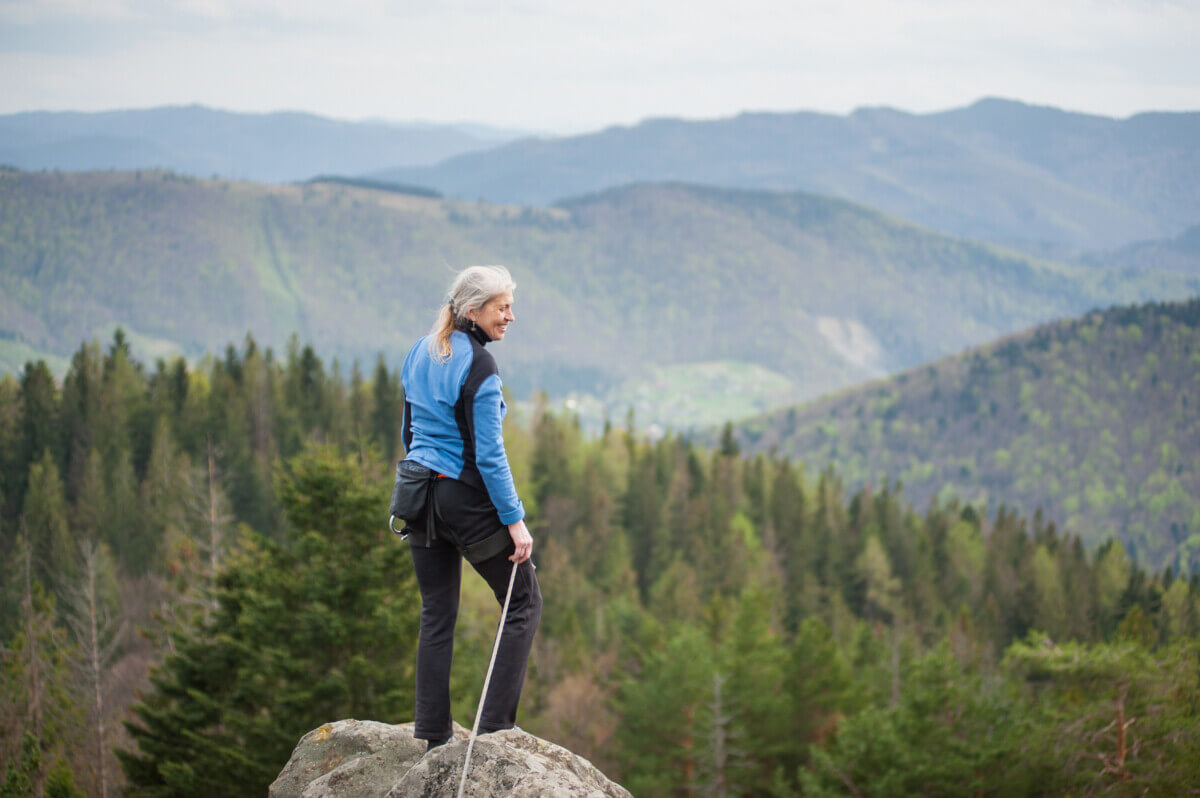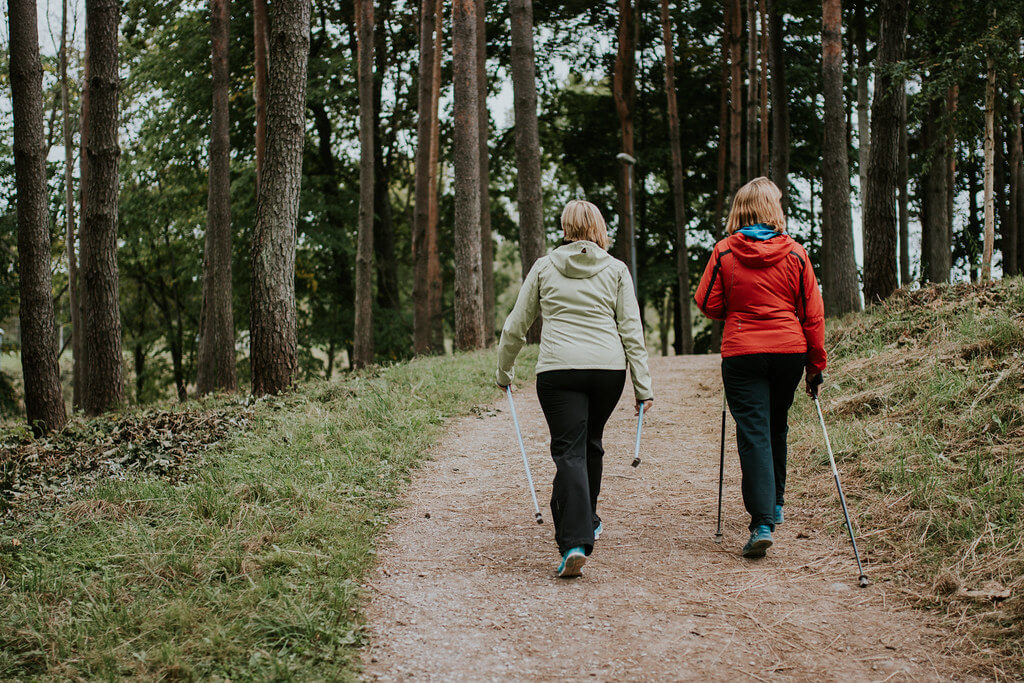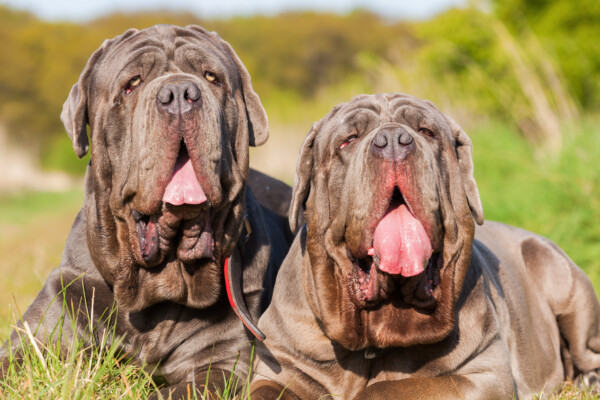
(Credit: anatoliy_gleb/Shutterstock)
I was taking a group class at an art studio – using a pottery wheel. The instructor moved among the learners, offering help. However, she passed by me one, two, three times, even though I’d raised my hand for help. I suddenly realized why. I’m older. It took a while to click. Not because I’m in cognitive decline, but I just don’t think of myself as old(er?). In American culture, women often become invisible as they get older. Society’s messages become toxic.
An older woman with hutzpah and masterful research skills grew tired of feeling invisible. Author Caroline Paul discovered, through her research, that one of the best things older women can do for themselves to age with high spirits is to have outdoor adventures. Fortunately, the same principles apply to men.
Adventure is defined by the adventurer. For some people, it’s white-water rafting, and for others, it’s birdwatching. However, all adventures share characteristics: a sense of anticipation, the physical vitality of the outdoors, and the adrenaline rush of accomplishment.
Nature is healing. Studies show that trees release chemicals called phytoncides that support the immune system. Birdsong calms brainwaves. Fractals – complex patterns found in clouds, ocean waves, and coastlines – relax the brain. People perform tasks better after a 15 to 45-minute walk outdoors.
Mindset matters. The way people perceive their own aging is predictive of how well they age. A pessimistic point of view about aging puts you at greater risk of cardiovascular disease and dementia. When you look at aging with anticipation and you’re excited about what your future may hold, it can add another seven years to your life.

A study published in JAMA Network Open in 2022 assessed 14,000 adults over the age of 50. Those who were optimistic about their futures had a 43% lower risk of dying during the next four years than people who had a pessimistic outlook on aging.
Outdoor adventure can transform a pessimistic outlook on aging into excitement about living. There’s a group of women in San Diego who call themselves the Wave Chasers. They boogie board together. The oldest member is 99. They find that doing what is unexpected of them is exhilarating, and they feel empowered about the future.
Our culture claims that we lose the ability to learn as we get older. You’ll even hear older people say of themselves, “I’m too old to learn that.” The brain, however, has plasticity. It can lay down new and different neural pathways to learn and problem-solve. An older brain can be more innovative than its younger self – circumventing what may have become problem areas. It’s vital that we keep learning throughout life.
I meet with a small group of men and women once a week. We’re learning (or relearning) Spanish. We recently changed our meeting time to accommodate one of the member’s watercolor and drawing classes. I skydived for the first time at age 44. The jumpmaster who taught me also jumped for the first time at 44. I’m not sure what’s next – kayaking, pickleball, and motorcycles are high on the list.
What challenge is next for you? Tell StudyFinds about your brain-boosting adventures in the comments!











As a scientist, I must comment that this article does not show that new and challenging activity for the elderly extends life. It could be that those who are healthy are willing to do these new things. Cause and effect is not clear here.
There is also an assumption that longevity is linked to health and exercise. That may not be so. See my article Is Longevity a Matter of Science or Fate?
https://www.academia.edu/45011920/Is_Longevity_a_Matter_of_Science_or_Fate
I appreciate your comment.
https://jamanetwork.com/journals/jamanetworkopen/fullarticle/2788853 is one of the articles cited in my article which demonstrates the effects I described and which I used to write it. The reference is highlighted in the body of the StudyFinds article. The link between longevity is not an assumption. It’s well-documented. Genetics are important, too, of course. Those ideas are not in opposition.
You being a scientist – you’re probably aware that there are many sides to any hypothesis, and they don’t have to be in opposition. More than one thing can be true about any given issue, and what’s true for some isn’t necessarily true for all.
StudyFinds inform its readers of the most newsworthy topics appearing in just-published journals and other sources. We encourage readers to do their own thinking in regard to its value and validity. The material we use is cited within the articles. StudyFinds doesn’t do its own independent research in health and medicine, and we do not make claims about the validity or value of the research about which we write. We don’t give advice. There is a full disclaimer on the SF website.